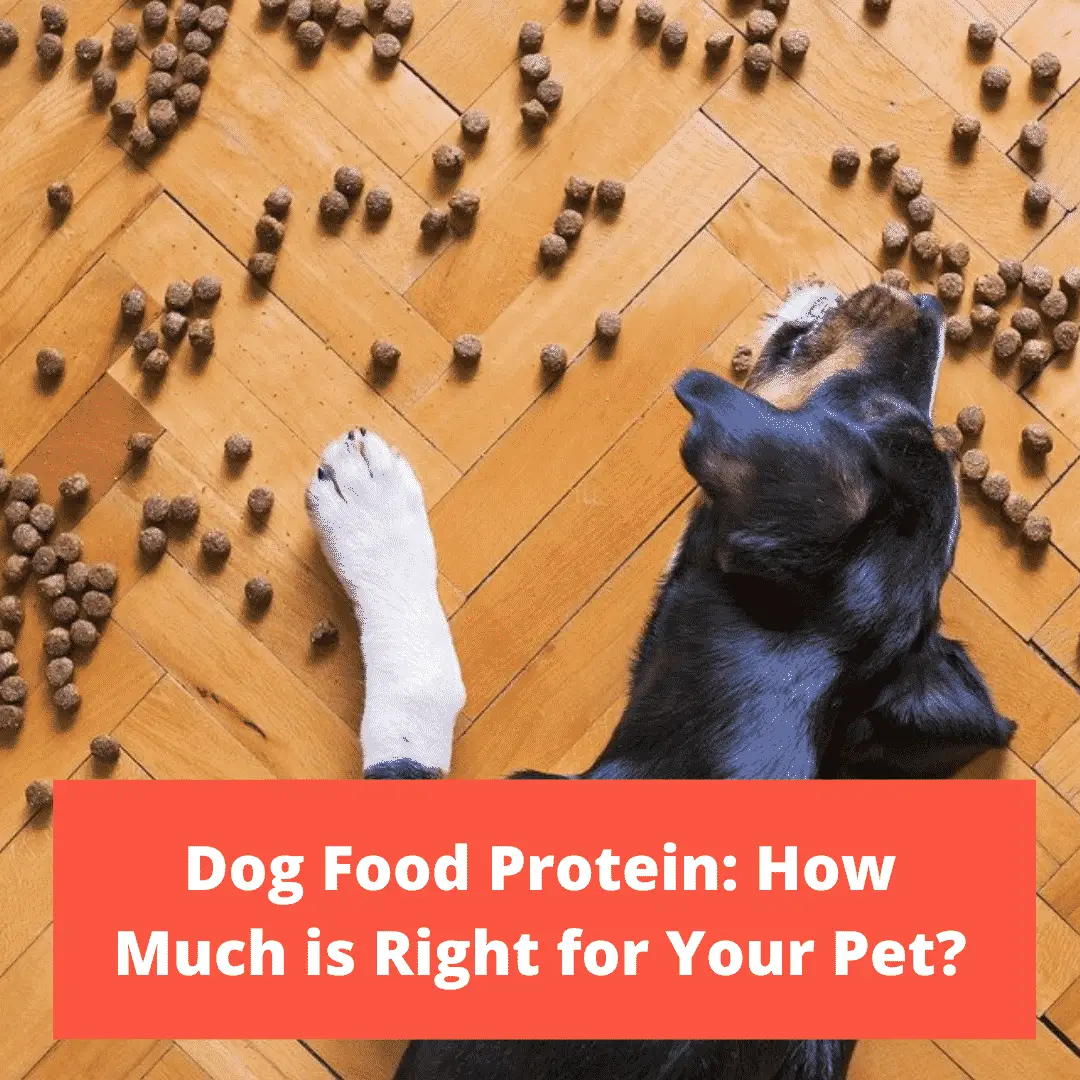Perhaps one of the major concerns for pet parents is what they should feed their dogs. After all, the type of food you give your canine friend will determine how healthy and happy your dog will be. And since a happy dog means a happy pet parent, it makes a lot of sense to think twice about what we feed our furry friends.
We bet you know that proteins are an essential component in your dog’s diet. But do you know the right amount of protein for your dog? Its true dogs are meat eaters and so thinking about the right amount of protein to feed them may seem the last thing you need to care about.
Even so, depending on the life stage your dog is in, lifestyle, and their overall health, you may be required to control the amount of protein that you feed your dog.
But what is the right amount of protein for your dog? And what will happen if you feed your dog too much proteins? Read on and learn more.

Why Do Dogs Need Proteins?
Dogs, just like humans and other animals need protein. Proteins form a necessary component for growth and development. Apart from helping in structural makeup, they also help boost the immune system. What’s more, they can be burned as calories and converted into fat for storage.
Even so, it is important to understand that pets need amino acid acids, an important component that forms the protein. In total, animals need 22 amino acids. While your pet can make some of these amino acids, some of them will need to be consumed.
They include histidine, leucine, arginine, lysine, valine, threonine, isoleucine, phenylalanine, methionine, and tryptophan. Unlike cats, dogs can make taurine. This explains why you can feed your dog cat’s food and not the other way round.
Are Dogs Exclusive Meat Eaters
While meats are believed to be the ultimate sources of proteins for dogs, you can feed your dog other foods too. These include vegetables, fruits, herbs, poultry, fish, etc. These will not just offer your dog all the necessary proteins but will ensure optimal growth as well.
Salmon oil, for instance, is an excellent protein source and is rich in Omega-3 acids. A good example of dog food that contains salmon oil is Wellness Core grain-free original formula dry dog food. Wellness Core dog food also contains chicken protein, an excellent source of glucosamine, that plays a key role in the growth of cartilage tissue. It also contains proteins necessary for boosting immune functions and muscle growth.
Whichever the food you choose for your dog, ensure that you consider the dietary needs for your dog. If your dog has any special needs, be sure to talk to your vet for customized advice.
So, How Much Protein Should You Feed Your Dog?
As earlier stated in this post, the protein requirements for a dog will largely depend on the dog’s life stage and the species. As such, a puppy will require more proteins compared to an adult dog.
Your dog will also require extra proteins if they are sick, when pregnant, or lactating. On the other hand, some conditions such as kidney disease will require fewer proteins to minimize its effects on the kidney.
What Happens When You Feed Your Dog Too Much Proteins?
Feeding your dog too much protein can have far-reaching effects on your pet’s health. To start with, protein-rich food often contains high amounts of calories which can make your dog overweight. As a dog owner, you should be wary of any food with high amounts of calories to ensure that your dog does not become obese.
Also, remember excessive proteins can lead to an overload of organs for dogs with liver and kidney problems.
To avoid these problems, ensure to choose a dog food that matches your dog’s lifestyle, size, and life stage.
What’s a Complete Dog Nutrition?
While protein offers complete nutrition for your dog, meat is not the only food you should give your dog. After all, excellent dog food should have digestible and bioavailable healthy sources of proteins such as fruits, vegetables, and grains, vitamins and minerals, and healthy fats.
These components will help in digestion, provide energy, help in absorption on minerals and vitamins, and strengthen the joints, teeth, hair, and skin. As such, your dog will need more than proteins to remain healthy and active.
As a rule of thumb, ensure to check the ingredients available when shopping for dog food. Apart from proteins, be sure to check on vitamins and minerals as well.








